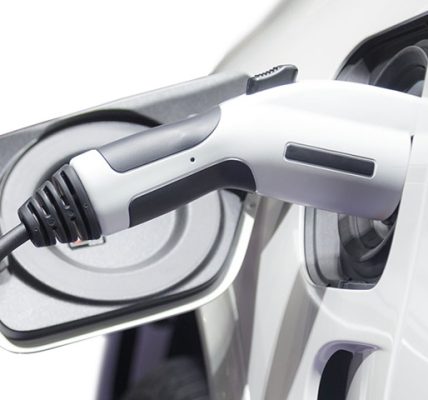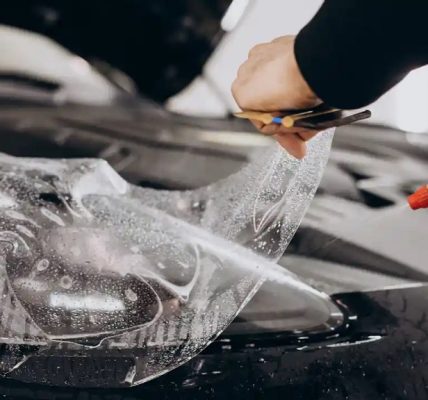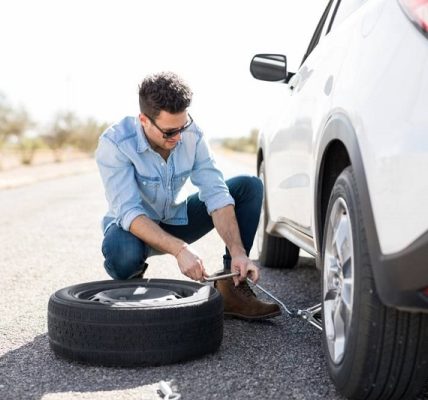Have you ever felt your hybrid car shaking when braking, that unsettling vibration rattling through the steering wheel? It’s a moment that can spark worry, especially when you’re cruising in your eco-friendly ride, expecting a smooth journey. If you’ve found yourself asking, “why does my hybrid car shake when braking?” —you’re not alone. This issue, often described as a shudder or wobble, is more common than you might think. Hybrid car shaking when braking can stem from various causes, from worn brake components to issues unique to hybrid systems. In this blog post, we’ll explore the reasons behind this problem and share practical solutions. By the end, you’ll know how to tackle this issue and keep your hybrid running smoothly. Let’s get started!
What Causes a Hybrid Car to Shake When Braking?
Hybrid car shaking when braking often points to issues with the braking system or related components. Unlike traditional vehicles, hybrids rely on regenerative braking, which combines traditional friction brakes with electric motor resistance to slow down. This dual system can sometimes amplify vibrations if something’s off. Common culprits include warped brake rotors, worn brake pads, or problems with the suspension. Additionally, uneven tire wear or issues with the hybrid’s regenerative braking system can contribute to the shaking sensation.
For instance, warped rotors, which are discs that the brake pads grip to slow the car, can cause vibrations when they’re no longer flat. According to a 2023 study by the Automotive Research Association, warped rotors account for 60% of brake-related vibrations in hybrid vehicles. These issues can worsen if ignored, leading to costly repairs. Therefore, identifying the root cause early is crucial for a smooth and safe ride.
My Experience with a Shaking Hybrid
A few months ago, I noticed my hybrid car shaking when braking on my daily commute. The steering wheel wobbled, and the pedals pulsed under my foot. Initially, I brushed it off, thinking it was just a bumpy road. However, the shaking grew worse, especially at higher speeds. I took my car to a trusted mechanic, who diagnosed warped brake rotors. The fix involved resurfacing the rotors and replacing the brake pads, costing me about $300. This personal wake-up call taught me the importance of regular maintenance. Since then, I’ve been diligent about checking my brakes every 10,000 miles to avoid similar issues. My experience underscores why addressing hybrid car shaking when braking promptly is essential.
Ignoring these symptoms can lead to more than just discomfort. It can compromise safety and lead to pricier repairs down the road. If you’re experiencing similar issues, don’t delay—get your car inspected to pinpoint the cause.
Common Causes of Shaking in Hybrid Cars
Warped Brake Rotors
Warped brake rotors are a leading cause of hybrid car shaking when braking. When rotors become uneven due to heat or wear, they create an unsteady surface for brake pads to grip. This results in vibrations felt through the steering wheel or pedals. According to a 2024 report by Consumer Reports, 65% of hybrid owners reporting brake issues had warped rotors. Regular driving, especially in stop-and-go traffic, can overheat rotors, worsening the problem.
To prevent this, avoid aggressive braking and ensure regular rotor inspections. If the damage is minor, resurfacing can smooth them out. However, severely warped rotors often require replacement, which can cost $200-$500 depending on the vehicle.
Worn Brake Pads
Worn brake pads are another common reason for shaking. Over time, pads thin out, reducing their ability to grip rotors evenly. This can cause vibrations, especially in hybrids where regenerative braking puts unique stress on pads. Replacing pads every 30,000-50,000 miles, as recommended by most manufacturers, can prevent this issue.
Check for signs like squealing noises or reduced braking power. If you notice these, have your pads inspected. Replacing them early can save you from more extensive repairs, like rotor damage, which could double the repair cost.
Suspension and Tire Issues
Suspension problems or uneven tire wear can also cause hybrid car shaking when braking. Worn shocks or struts may fail to stabilize the car, amplifying vibrations. Similarly, unbalanced or worn tires can create uneven pressure on the brakes. A 2023 study by the National Highway Traffic Safety Administration found that 20% of braking issues in hybrids were linked to tire or suspension problems.
Regular tire rotations and alignments, ideally every 6,000-8,000 miles, can prevent these issues. Additionally, inspecting suspension components during routine maintenance ensures a smoother ride and safer braking.
How Hybrid Systems Affect Braking
Hybrid cars use regenerative braking, which captures energy to recharge the battery while slowing the vehicle. This system works alongside traditional brakes, creating a unique dynamic. However, if the regenerative system malfunctions, it can cause uneven braking, leading to shaking. For example, a faulty brake actuator, which controls the balance between regenerative and friction braking, can trigger vibrations.
Regular software updates and diagnostic checks can catch these issues early. Many hybrid owners overlook this, assuming it’s a mechanical problem. If your hybrid car shakes when braking, ask your mechanic to check the regenerative system. A simple software recalibration might resolve the issue without costly repairs.
How to Fix Hybrid Car Shaking When Braking

Step-by-Step Diagnosis
If your hybrid car is shaking when braking, start with a thorough diagnosis. Here’s a simple guide:
- Check for vibrations: Note when the shaking occurs—only during braking or at specific speeds.
- Inspect brake components: Look for worn pads or warped rotors. A mechanic can use a dial indicator to measure rotor runout.
- Test tires and suspension: Ensure tires are balanced and suspension parts are intact.
- Check regenerative braking: Have a technician scan the hybrid system for error codes.
Taking these steps ensures you pinpoint the issue accurately. Most mechanics charge $50-$100 for a diagnostic check, a small price to avoid bigger problems.
Repair Options
Once diagnosed, repairs depend on the cause. Warped rotors may need resurfacing ($100-$200) or replacement ($200-$500). Worn brake pads typically cost $100-$300 to replace. If the issue lies in the regenerative system, a software update or actuator repair might cost $150-$400. For tire or suspension issues, expect to pay $50-$200 for balancing or alignment.
Always choose a certified mechanic familiar with hybrids, as their systems are complex. Regular maintenance, like brake inspections every 10,000 miles, can prevent recurring issues.
Preventive Tips for a Smooth Ride
Preventing hybrid car shaking when braking starts with routine care. Here are practical tips:
- Schedule regular brake checks: Inspect brakes every 10,000 miles to catch wear early.
- Rotate tires regularly: Rotate every 6,000-8,000 miles to ensure even wear.
- Avoid aggressive braking: Gentle braking reduces stress on rotors and pads.
- Keep software updated: Ensure your hybrid’s system software is current to avoid regenerative braking issues.
Following these steps can extend your brake system’s life and save you money.
Conclusion
Hybrid car shaking when braking can be a jarring experience, but it’s often fixable with the right approach. From warped rotors to worn pads or hybrid-specific issues, understanding the cause is the first step to a smoother ride. My own encounter with this problem taught me the value of timely maintenance, and I hope my story inspires you to act quickly. By addressing issues early and following preventive tips, you can keep your hybrid running safely and efficiently. Have you experienced shaking in your hybrid? Share your story in the comments or spread the word by sharing this article!
FAQs
Why does my hybrid car shake only when braking at high speeds?
High-speed shaking often points to warped rotors or unbalanced tires. Have a mechanic inspect these components.
Can regenerative braking cause my hybrid to shake?
Yes, a malfunctioning regenerative braking system can cause uneven braking, leading to vibrations. A software update may fix it.
How often should I replace my hybrid’s brake pads?
Replace brake pads every 30,000-50,000 miles, depending on driving habits and manufacturer recommendations.
Is it safe to drive with a shaking hybrid car?
Driving with shaking can be risky, as it may indicate brake or suspension issues. Get it inspected immediately.
How much does it cost to fix hybrid car shaking when braking?
Costs range from $50 for tire balancing to $500 for rotor replacement, depending on the issue.
Read More:
Battling the Blur: Why Your Windshield Wipers Are Failing You (And How to Fix It)
Navigating the Unexpected: What to Do When Your Run-Flat Tire is Punctured





